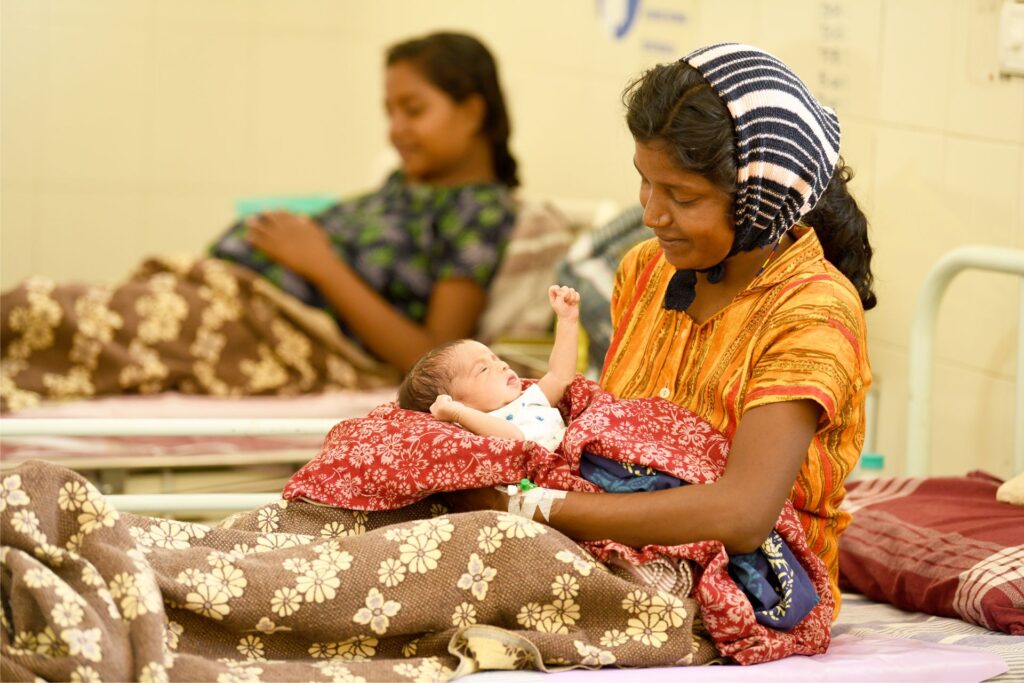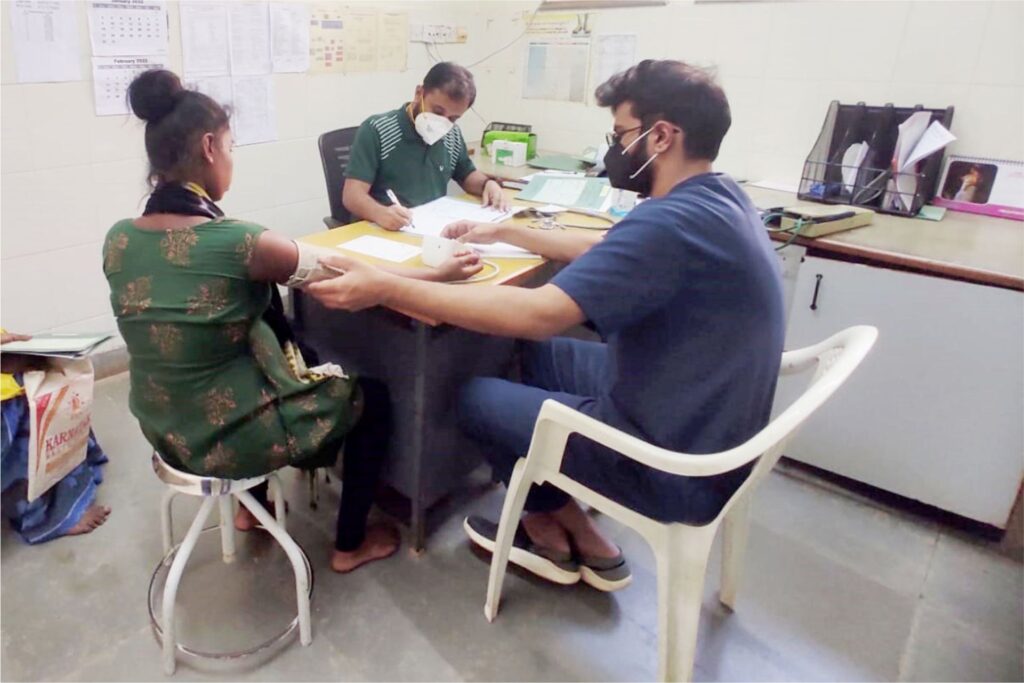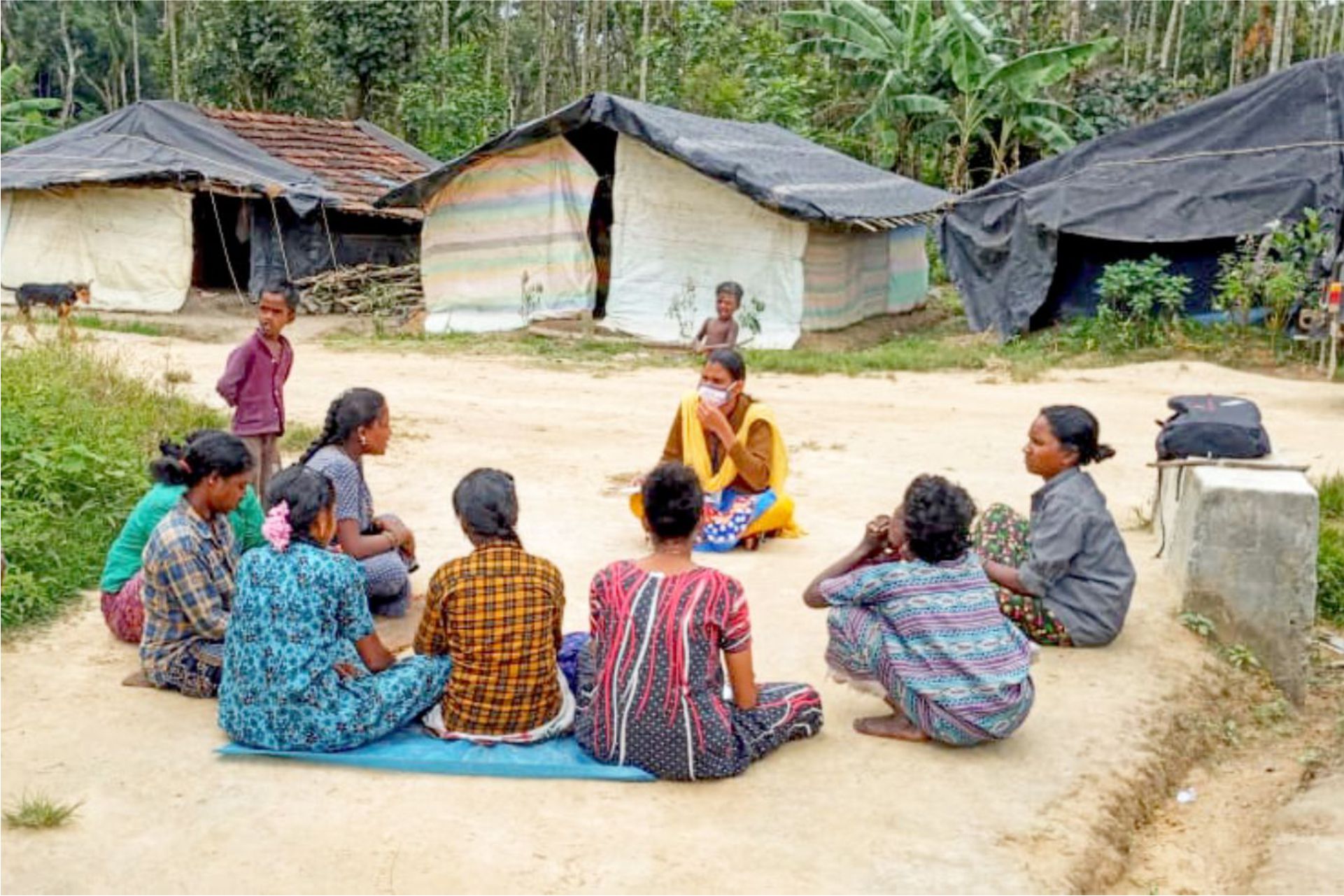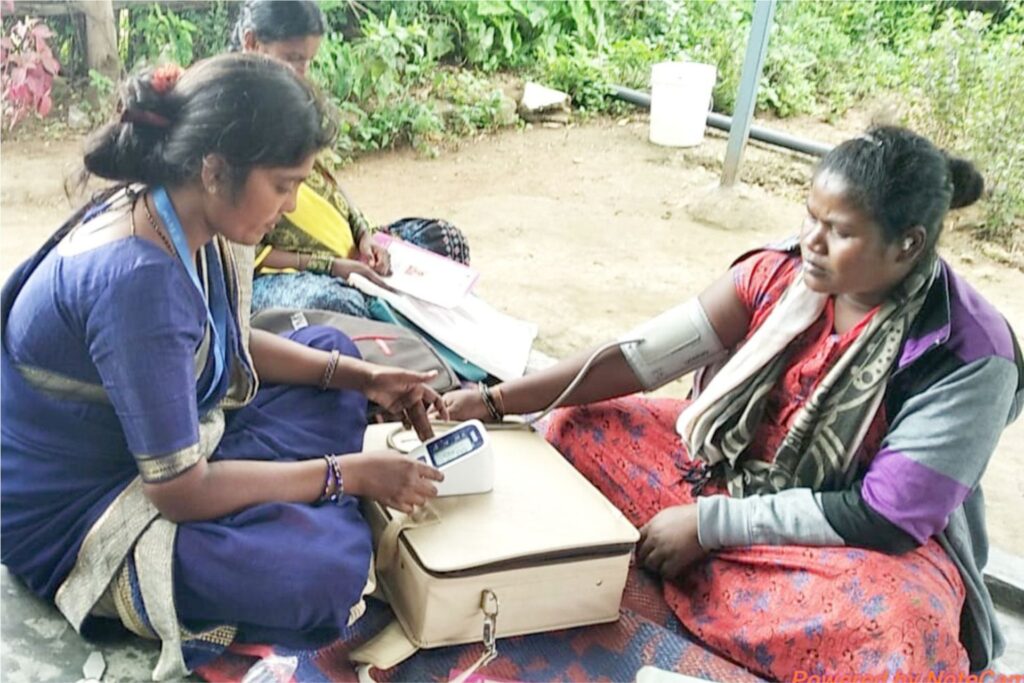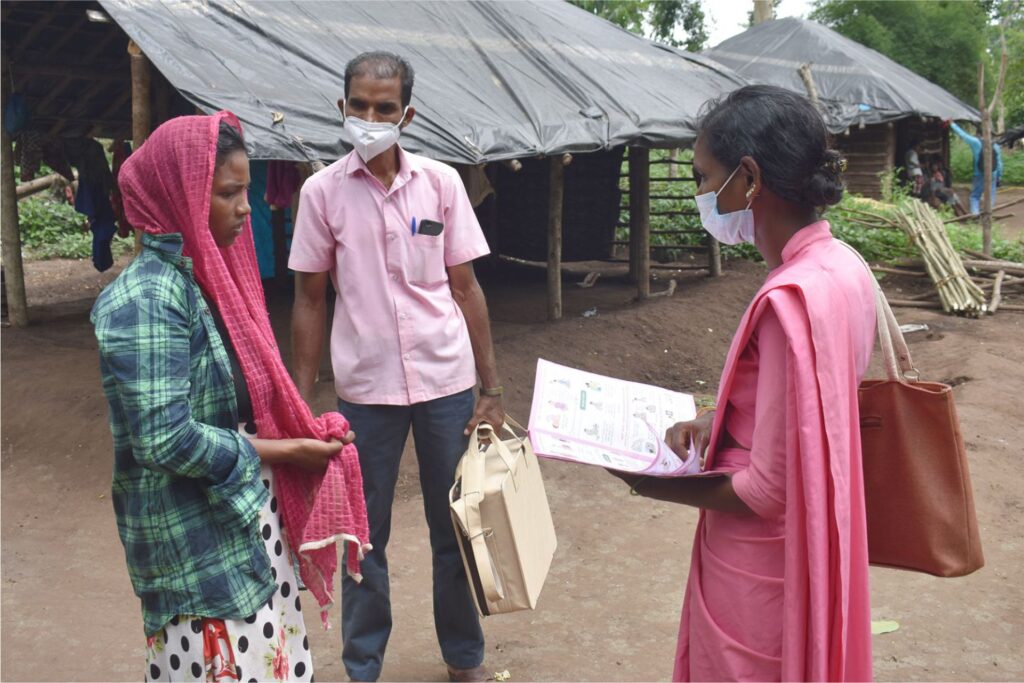Reproductive & Child Health Program
Started in 1997
3 Districts of Karnataka

Building Human &
Social Capital
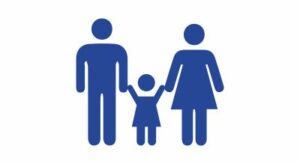
Family Centric
Approach
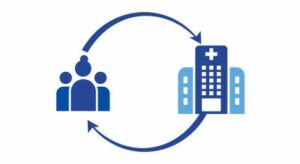
Complementing Institution & Community based interventions
Improving Reproductive and Child Health services
for Tribals and rural non Tribals
Improved access to safe delivery through public -private collaboration
98% Institutional deliveries in registered tribal women in 2021-22
Out of 822 institutional deliveries
530 in Govt. hospitals,
234 in VMH and
58 in private hospitals.
0 Maternal mortality.
Early identification & support for high risk pregnancies
559 Pregnant women attended 26 Antenatal Camps conducted at Vivekananda Memorial Hospital & PHCs.
467 Women identified with high risk pregnancy (HRP) supported for safe delivery.
A combination of institution & community based approach complimented each other ensuring detection of HRPs, which could have otherwise been missed/ delayed.
Behaviour change
Janadhwani Community Radio aired 24 episodes on reproductive & child health & conducted live phone-in programs on menstrual hygiene & preventing child marriage.
Addressing Social Issues
1170 Pregnant women, adolescent & caregivers participated in 291 Mothers Meetings conducted in their villages.
Prioritizing mental health and wellbeing, participants were counselled on social issues like domestic abuse, prevention of early marriages and COVID-19 awareness.
A vision of sustainable maternal – newborn care
Leveraging technology
Risk of exposure to COVID-19 and decrease in household income discouraged families to seek antenatal care.
Solar powered Mother Care Kits were used for early detection & monitoring of high risk pregnancies at village level.
Matruksha mobile app helped in real time data capture & tracking of pregnancies in remote locations.
Multi-stakeholder ownership
Facilitating administration-tribal cooperation, Range Forest Officers (RFOs) of the Karnataka Forest Dept. & Anti-Naxal Force (ANF), Gundlupet extended support to health camps and community based initiatives.
In 2021-22, over 1000 pints of blood were collected in camps conducted in 7 locations roughly worth INR 20,00,000, partly supporting tribal pregnant women
IMPACT STORY
Positive mindset towards institutional birth saving lives
Breaking barriers to serve pregnant women
Continued care during lockdown
Pregnant women and mothers need utmost care and attention, be it a pandemic or not.
Our community health teams faced novel challenges during the second wave to ensure the health & wellbeing of both mothers & the newly born.
In the second wave, the tribal hamlets barricaded themselves against any outsiders. It also meant the pregnant mothers in the community could not get their routine health
checkups. The RCH team requested the pregnant women to come to the barricade and get their regular check-ups done, so the team could track high risk pregnancies.
By leveraging technology and employing Solar ANC Kits equipped with electronic fetal doppler, BP apparatus, Hb test Kit, Glucometer, Urine strips, Pregnancy test kit & weight scale, the team could do routine follow ups right in the hadis.
“If an elephant can deliver a baby in a forest, why can’t I”
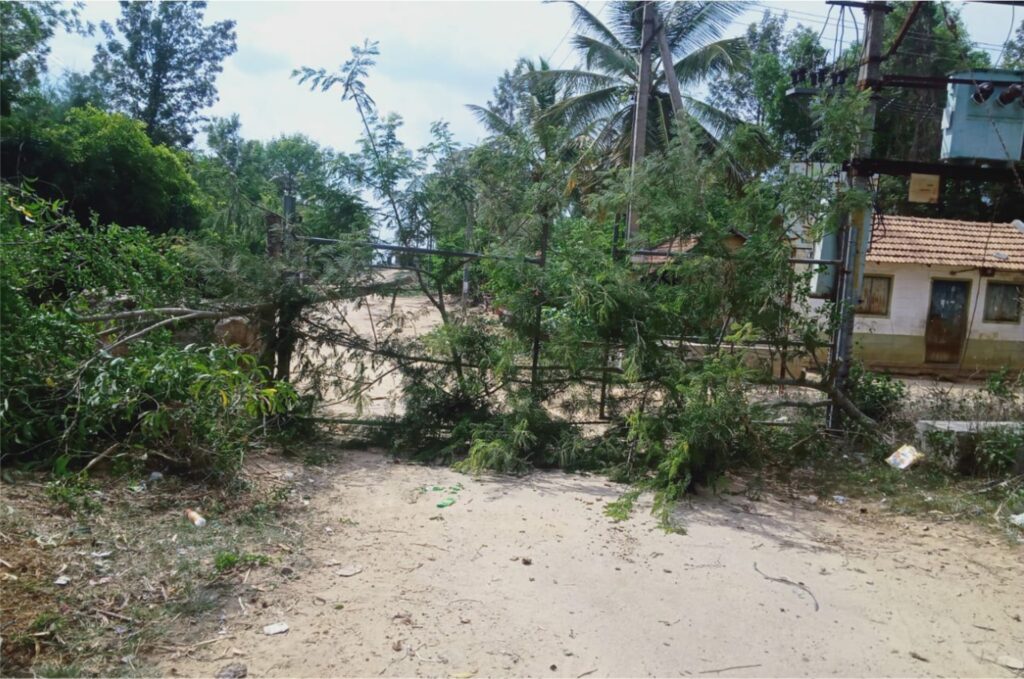 Barricaded Entrance at Nagapura Tribla Hamlet
Barricaded Entrance at Nagapura Tribla Hamlet
This statement from a woman from Jenukuruba Tribe living on the fringes of Bandipur forest in H D Kote region still plays clearly in our memory. Her belief in the traditional practice of giving birth at home was rational, validated through her life experiences and indigenous culture, she had never seen or experienced delivering a baby in a hospital, being the first generation of displaced tribal communities, moved out of the forest. But now as the second generation come of age, there’s a change in their mindset, and we salute the mothers and mothers in law for leading that change.
In 1997, when SVYM started its maternal and newborn care program, the baseline survey showed that ~95% of the pregnant women from indigenous tribal communities in the region delivered at home. Not every childbirth would bring happy news, high occurrence of anemia in pregnant women and pregnancy induced hypertension led to high risk pregnancy, a leading cause for maternal-newborn mortality.
 Three generations of indigenous tribal women in one photo – a change in mindset towards institutional childbirth
Three generations of indigenous tribal women in one photo – a change in mindset towards institutional childbirth
Today, we see an exact turn-around of the scenario with hospital deliveries to the tune of 97.66% in the year 2021. The direct result of which is that we recorded 0 maternal deaths for the 822 recorded deliveries in the year 2021 among indigenous tribal women. This is a significant achievement against a backdrop of COVID-19, which had disrupted essential health care delivery by cutting access to institutional health care.
The complementing institution and community based approach taken by SVYM played a crucial role in keeping the pregnant tribal
women connected to Antenatal Care through ANC follow ups, awareness about nutrition, scanning and vital check-ups at their home through mobile Mothercare Kits that are solar powered. Facilitating delivery at SVYM’s Vivekananda Memorial Hospital or other Govt Hospitals and Community Health Centres in the vicinity ensured 98% delivery in hospitals. Post Natal Care of the new mothers through immunisation, social entitlements and nutritional support were efforts to make sure the journey into motherhood starts strong.
The Reproductive and Child Health Program by SVYM reaches 64,000 tribals in three districts in southern Karnataka.
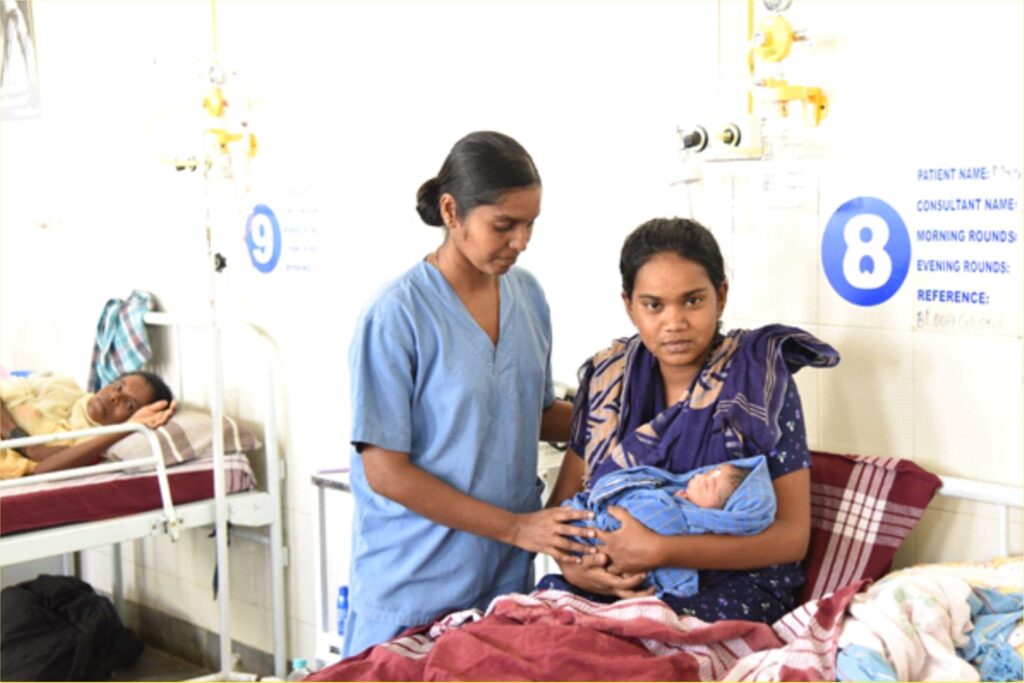
We thank Ashraya Hastha Trust for continuously supporting us and partnering in building the human capital of our nation by reducing maternal-newborn mortality in indigenous tribal communities.
